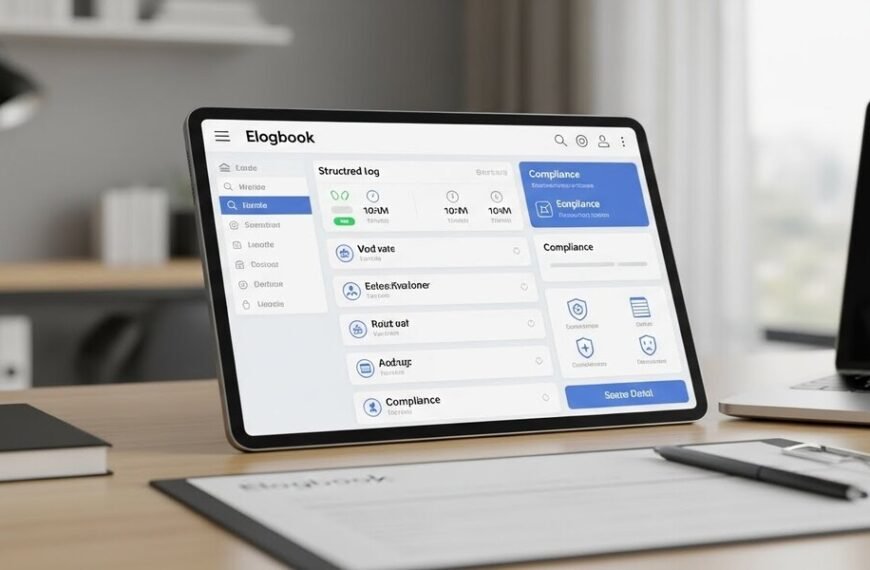Android emulation on macOS has evolved as a critical tool for developers, quality assurance, and users who want to take an active role in developing Android applications for the macOS operating system. Using virtualised Android environments, testers can run and evaluate applications without the need for native Android hardware.
Android emulator Mac allows developers to replicate multiple Android devices directly on their Mac computers, simplifying extensive testing, debugging, and application optimization. It enables developers to test applications on different devices, gamers play mobile games with a keyboard and mouse for improved control, and any individual can experience Android features on a larger screen.
This article will start by covering the basic overview of Android emulators and their advantages. It will also cover some limitations for running mobile apps on Mac using Android emulators, along with some key strategies to overcome those challenges, providing a better development experience. Additionally, we will help find the best options for Android emulators for Mac and also analyse their features.
Overview of Android Emulators for Mac
The Android emulator is a virtual device that emulates a specific Android device. The Android emulator functions as a target device for Mac computers to execute and test Android applications. Developers working on macOS systems use emulators to perform testing and debugging operations on Android devices. The official Android development IDE, Android Studio, functions best on Windows and Linux operating systems.
The Android Emulator from Android Studio stands as a popular choice among Mac users who need an Android emulator. Through its user interface, developers can build virtual Android devices with different hardware specifications and screen dimensions, and Android platform versions. This allows developers to distribute, launch, and test their Android applications straight from within the macOS environment.
Advantages of Using Android Emulators for Mac
Testers who want to execute Android applications on their Macs will benefit from using a Mac Android emulator. The advantages are as follows, stated in points.
- Application Testing- Developers can test their Android applications on Mac devices without the need for real Android devices to ensure compatibility and smooth functioning.
- Cross-platform development- Allows developers to create and test Android and iOS applications on Mac computers, hence simplifying cross-platform development.
- Performance testing- Through the assessment of Android applications’ performance on various Mac hardware combinations, testers can help make applications better for an even wider user base.
- Screen recordings and simulations- Several emulators allow developers to record operations in their applications for debugging or demonstrations.
- Testing for security- Developers may use emulators to test the privacy and security aspects of their Android apps in a controlled environment. This includes vulnerability assessment and penetration testing.
- Cost-effective solution- Emulators allow developers and testers to spend less on hardware by eliminating the need to purchase several real Android devices.
All of these advantages together make Android emulator for Mac a priceless tool for developers, testers, and users who wish to get the most out of using Android applications on Mac computers.
Limitations of Using Android Emulators to Test Mobile Applications on Mac
Performance variability
Emulators may not accurately simulate the hardware performance of real Android phones, and this might result in variations in the speed of responding and functionality of applications.
Compatibility issues
Some applications developed for Android might fail to function correctly or might behave strangely in an emulator environment, particularly when applications mainly depend upon hardware functions like the GPS or accelerometer.
Dependence on macOS updates
Developers must update their emulator software or drivers to guarantee compatibility with the most recent macOS version, as macOS updates may have an impact on emulator functionality.
Virtualization overhead
Emulators require more maintenance because they are based on virtualization technology. The aforementioned factors may have an impact on overall system performance, especially when running obsolete and weak Mac hardware.
Security Risks
Emulators that are not properly configured and use outdated software risk exposing the system that hosts them to malware or other security issues.
Best Practices For Using Android Emulator on Mac
The usage of Android emulators on macOS might be difficult due to poor performance, crashes, and other concerns. Here are some strategies to overcome these common issues:
Performance consideration
The virtual machine may run slowly due to limited system resources or high resolution settings. Testers may improve speed by turning on hardware acceleration, adjusting emulator settings, and closing any unnecessary background applications.
Set up AVD Managers
Outdated applications or faulty AVD files are common causes of crashes. To resolve this issue, update Android Studio, verify for macOS compatibility, and rebuild AVDs as needed. If using technologies like Docker, disable them since they can conflict with virtualisation.
Take Care of Graphical Issues
Improper GPU settings or outdated drivers may cause graphics rendering issues. Enable GPU acceleration and simplify display settings to boost graphics performance.
Network Configuration
Connectivity difficulties might be caused by faulty emulator network configurations or firewall interference. To resolve this, change the emulator’s network settings, check the firewall, and properly configure proxies.
Resource Allocation
If the emulator runs out of memory, it may cease operating. To resolve this, increase the AVD storage space, clear the cache, or set up external storage for bigger files.
Audio Features
Missing or distorted sound is frequently caused by outdated drivers or wrong settings. Updating macOS and reviewing the emulator’s audio settings generally resolves this problem.
Keyboard and Hardware Configuration
If the keyboard or input isn’t working, it might be because of the wrong settings or macOS shortcuts. To fix this, enable hardware keyboard input again and restart the emulator.
Use Cloud-Based Platforms
Cloud-based testing platforms improve testing capabilities by offering an array of real Android devices to test in various scenarios. Android emulators for Mac provide an affordable solution to remotely replicate Android devices. There are numerous platforms available that provide developers with a complete and effective option for testing Android applications on a Mac. LambdaTest is one of these choices.
Best Android Emulators for Running Mobile Applications On Mac
LambdaTest
LambdaTest is an AI-native test orchestration and execution platform that can conduct both manual and automated tests at scale. The platform enables testers to perform real-time and automated testing on over 10,000+ real environments and real mobile devices. Testers can use this platform instead of Local Android Emulators on Mac, since it offers cloud-hosted Android emulators and simulators.
Testers can use this platform to mimic and test Android applications on their Mac computers remotely by getting rapid access to numerous Android and iOS devices, and emulators, including the Android emulator for iPhone, iPad, Samsung Galaxy, Google Pixel, Xiaomi, and more. This enables teams to safely test from nearly any location, at any time, and on any device/OS combination.
Features
- Built-in Debugging Tools: It includes native debugging tools for web developers that allow them to test their applications across various mobile device emulators and browsers on Mac computers.
- Parallel Testing: Testers for Android web applications can execute concurrent tests on Android emulators with integrated frameworks such as Appium.
- Smart Data Generation: Utilises AI to generate realistic test data depending on the application’s specifications. This leads to the development of more comprehensive and accurate test scenarios, hence increasing test dependability.
- Geolocation Testing: The LambdaTest Android emulator allows testers to execute geolocation tests on Android apps across numerous regions.
Android Studio
Google’s Android Studio Emulator comes with a suite of tools to let developers create Android-specific games and applications. In addition, it turns out that testers can test the application or game using the built-in emulator. The emulator allows testers to check out how the application looks and performs on various Android versions, screen sizes, and hardware. It also allows them to evaluate gestures and screen rotations, as well as how it handles low-power scenarios.
Features
- Device Simulation: Create virtual devices with unique settings, such as varied screen sizes, resolutions, and Android versions.
- Multi-Touch Support: Testers may simulate multi-touch gestures with the emulator’s controllers or an external device.
- Sensor Emulation: Test applications using virtual sensors like GPS, accelerometer, and gyroscope.
BlueStacks
A well-liked option for gamers, BlueStacks is renowned for its seamless performance and vibrant graphics. The setup process for this emulator needs no specialized technical knowledge. Many applications that are optimized for Bluestack can be found online for simple use without any complications. It uses minimal memory and CPU power. The greatest gaming experience can be experienced by selecting this emulator.
Features
- Smart Game Controls: Popular games come with preset controls that make playing easier. Additionally, it reduces screen disorder to provide contextual intelligence.
- Cloud synchronization: Since all game developments are stored in the cloud, switching devices won’t affect it.
- Automate Tasks: To make tedious tasks easier, it uses the Macros tool to record and repeat actions. Additionally, by using custom scripts to supercharge tasks, testers save time and effort.
Genymotion
With its sophisticated testing features, this emulator was created specifically for application developers. Since it does not provide the best gaming experiences, gamers do not use this emulator. It functions well on Linux and macOS and supports Android Studio. This Android emulator provides testers with the ability to test applications on simulated devices that run different Android versions.
Features
- Android Studio Integration: Genymotion provides a smooth integration with Android Studio, which enables convenient testing and debugging processes.
- Realistic Testing: To see how the application performs in real-world scenarios, testers can mimic GPS, network conditions, and even battery levels.
- Parallel Testing: To compare results, testers can execute the same test on several devices at once. This speeds up the process by which testers identify problems, particularly with particular configurations.
The KO Player
The KO Player emulator has an intuitive interface and is easy to set up. The emulator provides gamers with flawless application navigation capabilities. This application provides a functional yet easy-to-use interface. User-friendly elements like keyboard controls and smooth graphics make this solution easy to use, mainly for gaming purposes. This emulator offers suitable functionality for casual users over developers.
Features
- User-Friendly Interface: It offers a simple setup process that makes it accessible to testers at all experience levels.
- Features for gaming: Improved graphics and keyboard mapping are provided for a better gaming experience.
- Custom Controls: For improved playability, users can modify the controls to fit their preferred gaming style.
NoxPlayer
The versatile Android emulator NoxPlayer functions smoothly on both Windows and macOS platforms. The platform finds widespread adoption from gamers along developers because it provides extensive customisation features. NoxPlayer provides users with custom keymapping features alongside root access capability and enables multiple instance operations. These features make it an excellent choice for gamers seeking high performance and flexibility.
Features
- Screen Sharing: To improve testing and interaction, share the screen while using the emulator.
- Media Capture: Record videos and take screenshots right in the emulator.
- Device Syncing: To access mobile applications on a Mac, synchronize the Android device with NoxPlayer.
- Android OS Mimic: Runs Android applications on Mac by replicating the Android operating system.
Conclusion
In conclusion, Android applications on macOS now have a much better experience due to the availability of Android emulators for Mac. The main features of the top Android emulators for Mac are highlighted in this article. Users who run Android emulators on Mac devices can find numerous solutions designed to match their unique requirements and preferences.
Optimising Android emulation on Macs improves developer productivity by making it easier to create, test, and refine applications. The emulator can be made more reliable and powerful by addressing performance issues, utilising hardware acceleration, and customising settings to match the system’s capabilities.






